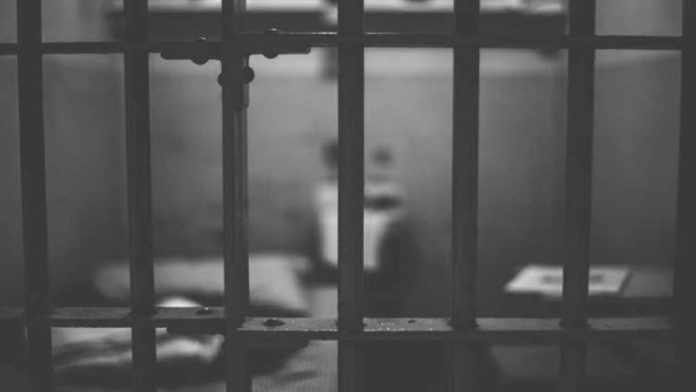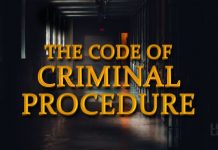This article is written by Nipun Raj , a student of Amity Law School, Ranchi. The article gives an explanation of parole and furlough in Indian Criminal Jurisprudence.
Table of Contents
Parole meaning
Parole means the release of a prisoner either temporarily for a special purpose or completely before the expiry of a sentence, on the promise of good behaviour.
The word parole is derived from the French phrase “je donne ma parole”, which means “I give my word”. Parole is the privilege given to the prisoners to return to the society and socialise with families and friends. It requires periodic reporting to the authorities for a set period of time. It is granted to that person who has already served a portion of his or her sentence. It enables the prisoner to deal with family matters and develop a good life for him or his family members.
Furlough meaning
Furlough is given in cases of long-term imprisonment. A prisoner’s sentence is considered to be remitted during his furlough time.It is to be allowed on a regular basis for no reason other than to allow the prisoner to maintain familial and social relationships and to counteract the negative consequences of long-term imprisonment. The right to be released on furlough is a substantial and legal right of the prisoner, and it cannot be rejected if permitted by law.
Types of parole
Regular parole
In all other cases, the government has the option of considering applications for regular parole. The following are some of the grounds on which the prisoner’s applications may be considered:
- A family member’s serious sickness.
- Family members are in a critical state as a result of an accident or the loss of a family member.
- Marriage of any member of the convict’s family.
- Birth of a child by the convict’s wife if no other family member is available to care for the spouse at home.
- Serious harm to the convict’s family’s life or property, including damage caused by natural calamities.
- Maintaining social and familial relationships.
- To file a Special Leave Petition with the Supreme Court of India in response to a High Court ruling convicting or upholding a conviction, as the case may be.
Emergency parole or custody parole
Custody parole can only be given in emergency events and circumstances, such as the death of a family member, the marriage of a family member, a family member’s major illness, or any other emergency situation. During the custody parole, the prisoner must be escorted to and from the location of visitation in order to ensure the prisoner’s safe custody. Such inmates would be considered to be in prison for the duration of the sentence, and the time would be counted as time spent in prison.
How parole and furlough are related to each other
The goal of both furlough and parole is to strike a balance between an offender’s rights and the rights of society in order to prevent the inmate from causing more harm. Both are types of conditional release, which means the offender must adhere to the terms of the order authorising furlough or parole, such as reporting to a local police station at regular intervals. If the competent authority believes that releasing the offender will be detrimental to society, both parole and furlough might be denied.
Difference between parole and furlough
| Serial no. | Parole | Furlough |
| 1. | It is not a right of the prisoner. | It is the right of the prisoner. |
| 2. | It is releasing a prisoner with a suspension of the sentence. | It is releasing a prisoner with remission of his sentence. |
| 3. | In the case of short-term confinement, parole may be granted. | In the case of long-term confinement, Furlough may be granted. |
| 4. | It can be granted a number of times. | There is a limitation to grant furlough. |
| 5. | Parole lasts for one month. | Furlough lasts for fourteen days maximum. |
| 6. | A specific justification is necessary. | It is to break the monotony of punishment so no justification is needed. |
| 7. | The days of leave aren’t included within the sentenced period. | The sentence of convict goes along with the furlough period. |
| 8. | It is granted by the Divisional Commissioner. | It is granted by the Deputy Inspector General of Prisons. |
Difference between parole and bail
Many individuals mistakenly believe that parole and bail to be the same thing. However, there is a distinction between the two, and they both have separate legal implications. Bail is well understood in criminal law, and regulations relating to bail are found in Chapter XXXIII of the Code of Criminal Procedure, 1973.
The power of the courts to grant bail is specified in Sections 436, 437, 438 and 439 of the Code of Criminal Procedure. Section 436 deals with bail in bailable offences, Section 437 with when bail may be taken in non-bailable offences, Section 438 with direction to provide bail to anyone apprehending arrest, and Section 439 with the specific competence of the High Court and Court of Sessions to issue bail. The result of granting bail is that the accused is released from internment, yet the Court retains constructive authority over him through the sureties. If the accused is released on his own bail, such constructive control could still be applied through the terms of the bond.
The goal of both furlough and parole is to strike a balance between an offender’s rights and the rights of society in order to prevent the inmate from causing more harm. Both are types of conditional release, which means the offender must adhere to the terms of the order authorising furlough or parole, such as reporting to a local police station at regular intervals. If the competent authority believes that releasing the offender will be detrimental to society, both parole and furlough might be denied.
While distinguishing bail from parole, the Hon’ble Supreme Court stated in State of Haryana v. Mohinder Singh (2000), that parole is a provisional release from confinement but is considered to be a component of the imprisonment. Parole is an element of the rehabilitation process, and it is meant to allow the offender to change his habits and become a contributing member of society. Parole is essentially a grant of partial liberty or a reduction in limitations to a convicted prisoner, but it does not modify the prisoner’s status. Rules are drafted to ensure that offenders released on parole are monitored by parole officials and that if they fail to keep their promises, they are ordered to surrender to custody.
Eligibility of grant of parole
- The prisoner must have served at least one year in prison, in addition to the period spent in remission.
- The prisoner’s behaviour should be good.
- The prisoner should not have committed any crime during his previous parole period.
- The previous parole should have been terminated a minimum of six months ago.
- The convict should not have violated any of the terms and restrictions of his or her previous release.
Instances of misuse of parole
The concept of parole has been highlighted by the judiciary and penologists to lessen the challenges of prison life; however, whether parole truly serves a function or only serves as a means of escape becomes a critical subject. In the following cases, there is clear evidence of misuse.
In the case of Central Bureau Investigation v. Bibi Jagir Kaur & Ors. (2018), Bibi Jagir’s Kaur was sentenced to prison for her role in the murder of her daughter. The murder accusations against her were dropped, and she was acquitted in 2018. She was sentenced to five years in prison. She was granted parole after barely four months in prison. Because she was a former Punjab Cabinet Minister, she was claimed to have gotten special treatment.
In the case of Sidharta Vashisht @ Manu Sharma v. State (NCT of Delhi) (2010), while on parole, the convict in the infamous Jessica Lal murder case was discovered clubbing. His justification for seeking parole was the death of his grandmother, which occurred a year ago, and the illness of his mother, which was also discovered to be a fabrication.

Important cases related to the concepts
In the case of Babulal Das v. the State of West Bengal (1975), though in the context of preventive detention, Hon’ble Mr. Justice Krishna Iyer of the Supreme Court observed about the need for parole as follows: “It is fair that persons kept incarcerated and embittered without trial should be given some chance to reform themselves by reasonable recourse to parole power under Section 15 of the Maintenance of Internal Security Act 1971.”
In the case of Kesar Singh Guleria v. the State of Himachal Pradesh (1984), the High Court held that the act of releasing a prisoner on parole or furlough should not be viewed as an act of charity, compassion, or clemency, but rather as an act in the discharge of a legal duty that must be carried out upon the fulfilment of the prescribed conditions in order to achieve a salutary goal.
In the case of Samir Chatterjee v. State of West Bengal (1975), the Supreme Court overturned a Calcutta High Court order releasing a person detained under Section 3(1) of the Maintenance of Internal Security Act on parole and rejected the argument that long-term preventive detention can be self-defeating and criminally counterproductive.
Conclusion
It is clear that parole is unavoidable. A parole system appears to be rational and necessary in this context. It’s a support for a humanistic attitude to confined prisoners. The main goal of such regulations is to provide criminals with a chance to work out their personal and familial difficulties while also allowing them to stay connected to society. As a result, concepts like parole and furlough, when handled wisely, can assist convicts/prisoners in effectively re-entering society and living law-abiding lives.
References
- https://www.mondaq.com/india/trials-appeals-compensation/905726/what-is-parole
- https://blog.ipleaders.in/parole-india-laws-related/
- https://www.drishtiias.com/daily-updates/daily-news-analysis/revised-guidelines-for-parole-and-furlough-mha
- https://crlreview.in/parole-and-furlough-explained/#:~:text=In%20layman’s%20term%20furlough%20refers,prison%20rules%20of%20each%20state.
- https://www.scconline.com/blog/post/2021/10/21/furlough-not-a-legal-right-supreme-court-explains-difference-between-parole-and-furlough/
- https://saudijournals.com/media/articles/SIJLCJ_29_263-270_c.pdf
- http://internationaljournalcorner.com/index.php/ijird_ojs/article/viewFile/135804/94926
LawSikho has created a telegram group for exchanging legal knowledge, referrals and various opportunities. You can click on this link and join:
https://t.me/joinchat/L9vr7LmS9pJjYTQ9
Follow us on Instagram and subscribe to our YouTube channel for more amazing legal content.
 Serato DJ Crack 2025Serato DJ PRO Crack
Serato DJ Crack 2025Serato DJ PRO Crack










 Allow notifications
Allow notifications


